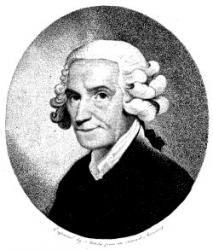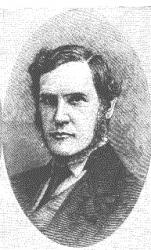Planning worship?
Check out our sister site, ZeteoSearch.org,
for 20+ additional resources related to your search.
- |
User Links
Person Results
‹ Return to hymnal





Export as CSV
Henry Baker
1835 - 1910 Hymnal Number: 244 Composer of "HESPERUS" in Christian Science Hymnal (Rev. and enl.) Henry Baker, Mus. Bac., son of the Rev. James Baker, Chancellor of the diocese of Durham; born at Nuneham, Oxfordshire; educated at Winchester School; graduated Bachelor in Music at the University of Oxford in 1867. He also worked as a civil engineer.
Scottish Church Music, its composers and sources by James Love; William Blackwwod and Sons, Edinburgh and London, 1891
Henry Baker
Basil Harwood

1859 - 1949 Hymnal Number: 375 Composer of "THORNBURY" in Christian Science Hymnal (Rev. and enl.) Basil Harwood (11 April 1859 – 3 April 1949) was an English organist and composer.
Basil Harwood was born in Woodhouse, Gloucestershire (the second youngest of 12 children) on 11 April 1859. His mother died in 1867 when Basil was eight. His parents were Quakers but his elder sister Ada, on reaching 21 in 1867, converted to the Anglican Church. Basil was allowed to attend the ceremony at the Church of England in Almondsbury and this is where he was first drawn to organ music and choral singing. His father, Edward, remarried two years later in 1869 to a lady from an Anglican family. Basil was now sent to the Montpellier School in Weston-super-Mare for a year. In 1871, at 12 he was enrolled in Clevedon, the preparatory school for Charterhouse where he was first to formally study music.
He went up to Charterhouse in 1874 and left in 1876 having won a leaving Exhibition to Trinity College, Oxford where he initially studied Classics (1879) and Modern History (1880). He then studied for a further two years, 1881–1882, at the Leipzig Conservatory under Carl Reinecke and Salomon Jadassohn. It was here in 1882, Basil composed his first anthem for chorus and organ "O Saving Grace." He returned from Leipzig to realise that he had now passed the age limit to study music formally.
In 1883, Basil became organist of St. Barnabas Church, Pimlico completing his Sonata in C# Minor here in 1885, selling the copyright to the publisher Schott for one shilling a year or two later. After this success, he then moved to Ely Cathedral in 1887 where he wrote the bulk of Dithyramb, possibly his greatest organ work. His final appointment was as organist at Christ Church, Oxford and as precentor of Keble College, Oxford from 1892 to 1909. Whilst there he co-founded and conducted the Oxford Bach Choir which helped to earn him his degree as Doctor of Music. He conducted the Oxford Orchestral Association (1892–1898).
He was musical editor of the 1908 Oxford Hymn Book and Examiner for Musical Degrees (1900–1925).
During this time, he met and married Mabel Ada Jennings (the daughter of George Jennings) (who had become a pupil of his in 1896) at All Souls St. Marylebone, London (27 December 1899). Mabel had studied music herself, piano and composition, and was also a writer. She may well have composed lyrics for some of his lesser known tunes. At an advanced age she wrote a small volume of collected poems named Questing Soul.
He retired early at 50 (in 1909) after the death of his father, Edward Harwood, from whom he inherited the family estate of Woodhouse having outlived his seven older brothers. Soon after moving in he had a three manual chamber organ built in the library by Bishop & Sons of Ipswich (now in Minehead Parish Church), on which he promptly finished his Sonata in F# Minor. He continued to compose prolifically.
He was a keen walker, and named many of his hymn tunes after local places that he loved to visit, the most notable being the hymn tunes such as Tockington, Olveston, Almondsbury and Thornbury.
In 1936 advancing in years, he let the Woodhouse estate and moved to Bournemouth. Part of the estate, Woodhouse Down, was later sold to his contemporary Robert Baden-Powell who was two years older than he was and who had also attended Charterhouse School, and is used as a Scout Camp to this day.
In 1939, at eighty, he moved to London, taking a flat in Fleet Street. After a long life, he died on 3 April 1949, eight days short of his 90th birthday, at Courtfield Gardens in the Royal Borough of Kensington, London. A memorial service was held in St Paul's Cathedral on 22 April 1949. Mabel survived him, dying shortly before her 103rd birthday on 20 July 1974. He was survived by two sons; Major John Edward Godfrey Harwood (1900–1996) and Basil Antony Harwood (1903–1990) Senior Master of the Supreme Court, Q.B.D. and Queen's Remembrancer.
His remains are interred in St. Barnabas Church, Pimlico and marked by a plaque inset in floor of the chancel, close to where he would have stood to conduct the choir.
He composed cantatas, church music and works for the organ; his Service in A flat, the anthem O how Glorious and the hymn tunes LUCKINGTON ("Let all the world in every corner sing") and THORNBURY ("Thy hand O God has guided"), first used during a festival of the London Church Choir Association, remain in the Anglican repertory.
--en.wikipedia.org/wiki
Basil Harwood
Frances Thompson Hill
Person Name: F. T. H. Hymnal Number: S413 Author of "Let us sing of Easter gladness" in Christian Science Hymnal (Rev. and enl.)
Frances Thompson Hill
George M. Garrett

1834 - 1897 Hymnal Number: 111 Composer of "ESCHOL" in Christian Science Hymnal (Rev. and enl.) Born: June 8, 1834, Winchester, Hampshire, England.
Died: April 9, 1897, Cambridge, England.
Buried: Cambridge Mill Road Cemetery, Cambridge, England
George M. Garrett
Charles H. Barlow
Hymnal Number: 391 Author of "Why search the future and the past?" in Christian Science Hymnal (Rev. and enl.)
Charles H. Barlow
Mary Whitwell Hale
1810 - 1862 Person Name: Mary W. Hale Hymnal Number: 383 Author of "Whatever dims thy sense of truth" in Christian Science Hymnal (Rev. and enl.) Hale, Mary Whitwell, daughter of Eliphalet Hale of Boston, U.S.A., was born at Boston, Jan. 29, 1810. After receiving a good education she devoted herself to educational work in Boston, Taunton, Keene, N. H., and elsewhere. She died Nov. 17, 1862. Her hymn-writing was brought into notice by two hymns, one on "Home," and the second on "Music," which were written for a juvenile concert at the Unitarian Church in Taunton, April 1834. Several of the hymns and poetical pieces which she subsequently wrote were contributed to the Christian Register under the initials "Y. L. E.," the concluding letters of her name. Her Poems were published at Boston in 1840. A few of her hymns also appeared in the Unitarian Christian Hymns for Public and Private Worship, commonly known as the Cheshire Collection, in 1844. [American Hymnody, § vii.] Putnam (to whom we are indebted for these details) gives the following of her hymns, with others, in full in his Singers and Songs of the Liberal Faith, 1874 :
1. "Praise for the glorious light." Temperance Anniversary.
2. "This day let grateful praise ascend." Sunday.
3. "Whatever dims the sense of truth." A Mother's Counsel.
4. "When in silence o'er the deep." Christmas.
These hymns were given in the Cheshire Collection, 1844. Nos. 2 and 3 were taken from her Poems. Some of the other pieces given by Putnam are worthy of attention.
-- John Julian, Dictionary of Hymnology
Mary Whitwell Hale
Frederic W. Root
1846 - 1916 Hymnal Number: 293 Author of "Rock of Ages, Truth divine" in Christian Science Hymnal (Rev. and enl.) Frederic Woodman Root was the son of George F. Root and Mary Woodman, born 13 June 1846 in Boston, died 8 November 1916 in Chicago.
Frederic W. Root
James Nares

1715 - 1783 Hymnal Number: 296 Composer of "AMSTERDAM" in Christian Science Hymnal (Rev. and enl.) Born: April 19, 1715, Stanwell, Middlesex, England.
Died: February 10, 1783.
Buried: St. Margaret’s, Westminster, England.
After his family moved to Oxford, Nares became a chorister in the Chapel Royal. He later became deputy organist at St. George’s Chapel, Windsor; organist in York Cathedral (1734); and organist in the Royal Chapel and composer to the king (1756). He received a doctorate of music degree from Cambridge University in 1756. In 1770, the Catch Club awarded him a prize for his glee To All Lovers of Harmony.
Sources:
Frost, p. 683
Nutter, p. 462
http://www.hymntime.com/tch/bio/n/a/r/nares_j.htm
====================
http://en.wikipedia.org/wiki/James_Nares
James Nares
William Henry Gladstone

1840 - 1891 Person Name: William H. Gladstone Hymnal Number: 243 Composer of "OMBERSLEY" in Christian Science Hymnal (Rev. and enl.) Born: June 3, 1840, Hawarden, Flintshire, Wales.
Died: July 4, 1892, Westminster, London, England.
Eldest son of British prime minister William Gladstone, William attended Eton College and read Greek and Latin at Christ Church College, Oxford University. A Member of Parliament for a total of 20 years, representing Chester for 3; Whitby, Yorkshire for 12; and East Worcestershire for 5. A singer and organist, he was well versed in musical history, especially the development of Anglican church music. He wrote on musical topics, and one of the views he expressed was that choral church services were to be deplored because "the choirs often discourage the congregations from singing." He wrote the anthems "Gracious and Righteous" and "Withdraw Not Thou", & chants, anthems, introits & organ voluntaries. His works include:
A Selection of Hymns and Tunes, 1882
--www.hymntime.com/tch/
William Henry Gladstone
H. S. Cutler

1825 - 1902 Person Name: Henry S. Cutler Hymnal Number: 374 Composer of "ALL SAINTS NEW" in Christian Science Hymnal (Rev. and enl.) Henry Stephen Cutler (b. Boston, MA, 1824; d. Boston, 1902) studied music in Frankfurt, Germany, in 1844. He moved to England, where he listened with interest to the cathedral choirs and came under the influence of the Oxford Movement. Returning to Boston in 1846, Cutler became organist of the Episcopal Church of the Advent and formed a choir of men and boys, to whom he introduced the wearing of liturgical robes. When he took a position at Trinity Church in New York City, he removed women from the choir and used the occasion of a visit by the Prince of Wales to the church to introduce his newly vested men and boys' choir. He also moved the choir from the gallery to the chancel and initiated the chanting of the psalms and the singing of part of the worship service. Cutler compiled The Psalter, with Chants (1858) and published The Trinity Psalter (1864) and Trinity Anthems (1865).
Bert Polman
H. S. Cutler


 My Starred Hymns
My Starred Hymns


